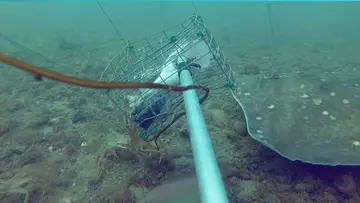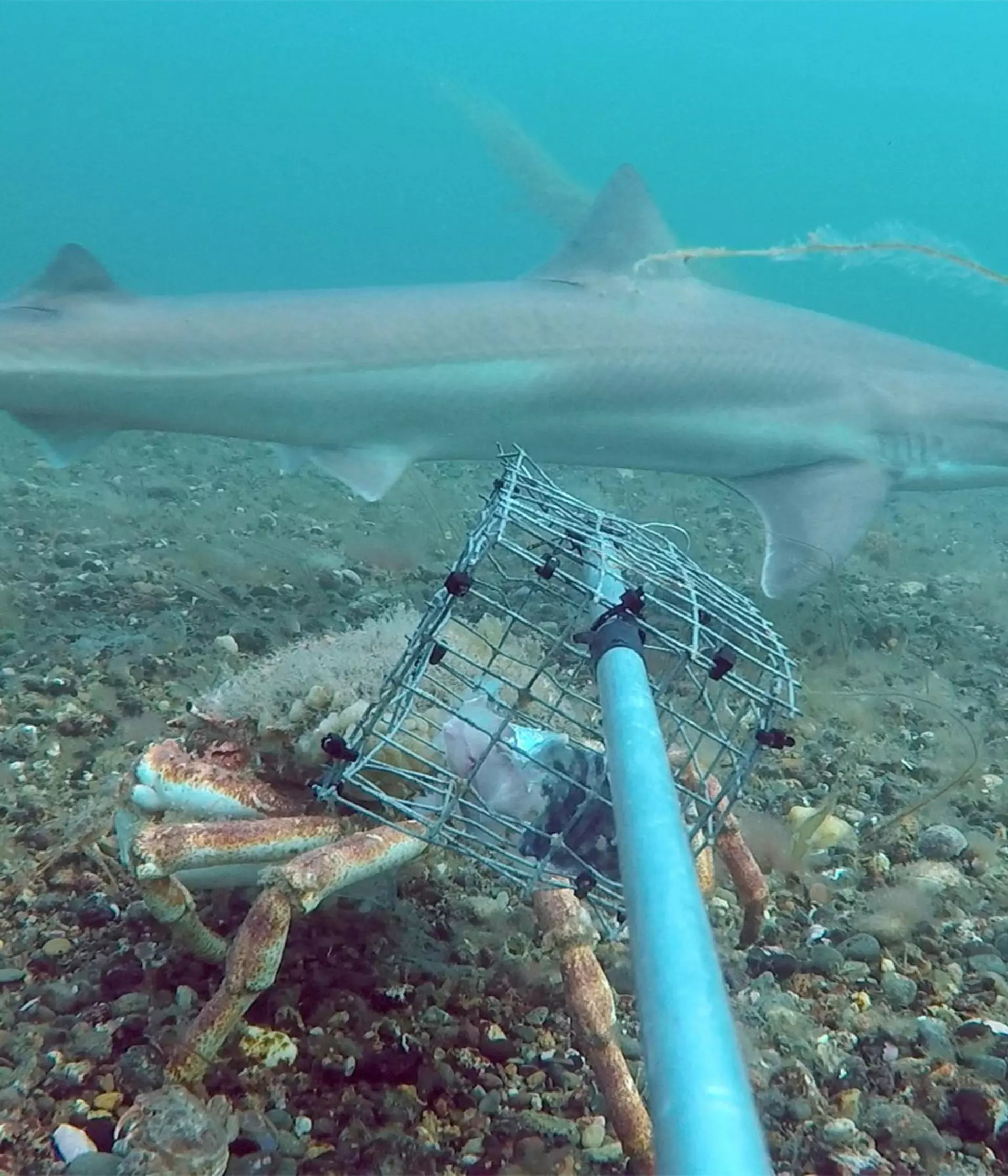
ZSL
Zoological Society of London
People of all ages can dive into marine conservation and learn about the extraordinary sharks, skates and rays living in Welsh coastal waters, in a new project which gives diverse local communities the chance to be part of a ‘green recovery’ in Wales.
Launched by ZSL and Natural Resources Wales (NRW), Project SIARC is enlisting the help of fishers, schoolchildren, researchers and citizen scientists from across Wales to better understand some of the more unusual coastal species, such as the angelshark (Squatina squatina) and common stingray (Dasyatis pastinaca), listed as Critically Endangered and Vulnerable on the IUCN Red List of Threatened Species respectively.
The project has received a £390,000 grant from the Welsh Government’s Nature Networks Fund which was delivered by the National Lottery Heritage Fund, as well as a £180,997 National Lottery grant from National Lottery Heritage Fund and £40,000 grant from On the Edge.
River Thames ZSL Shark Conservation

The Welsh coast is home to a range of marine life, including 26 species of sharks, skates and rays - a group known as elasmobranchs. Elasmobranchs are an important part of Wales’ natural heritage, with significant conservation and cultural importance. Despite this, little is known about their biology and ecology.
School children are also encouraged to get involved. Project SIARC will scale up the success of online “meet the scientist” sessions from Angel Shark Project: Wales, to reach thirty schools across Wales. The project will also work with ten schools around Carmarthen Bay to try their hand at 3D printing shark models, which will be used to educate the next generation about elasmobranchs.
Mr Griffiths, Headteacher at Ysgol Gynradd Nantgaredig said: “We are very excited to get involved in Project SIARC, it will be extremely valuable for our year five class to learn about sharks, skates and rays living off our local beaches. We are particularly keen about the prospect of introducing industrial digital technologies, such as 3D printing, as a tool to reinforce teaching on sustainability, biodiversity and art. It will enable the children to really connect with the environment around them and understand how much we all rely on the natural world.”
Ben Wray, NRW Project SIARC Manager & Marine Ecologist added: “Co-led by ZSL and NRW, Project SIARC is part of a wider integrated approach in Wales driven by the Well-being of Future Generations and Environment Acts. This recognises that resilient ecosystems are fundamental to the well-being of people in Wales. By re-connecting people with nature, we can support improvements in mental health and well-being as well as encourage better stewardship of our seas and reverse the decline in biodiversity. It also highlights the interconnections of global environmental issues, such as the climate and nature emergencies.”
Anyone currently living or residing in Wales can get involved with Project SIARC and follow their work on Facebook, Instagram or Twitter.
We're fighting for wildlife across the globe, from the dark depths of the Atlantic ocean to mountain tops in China.
